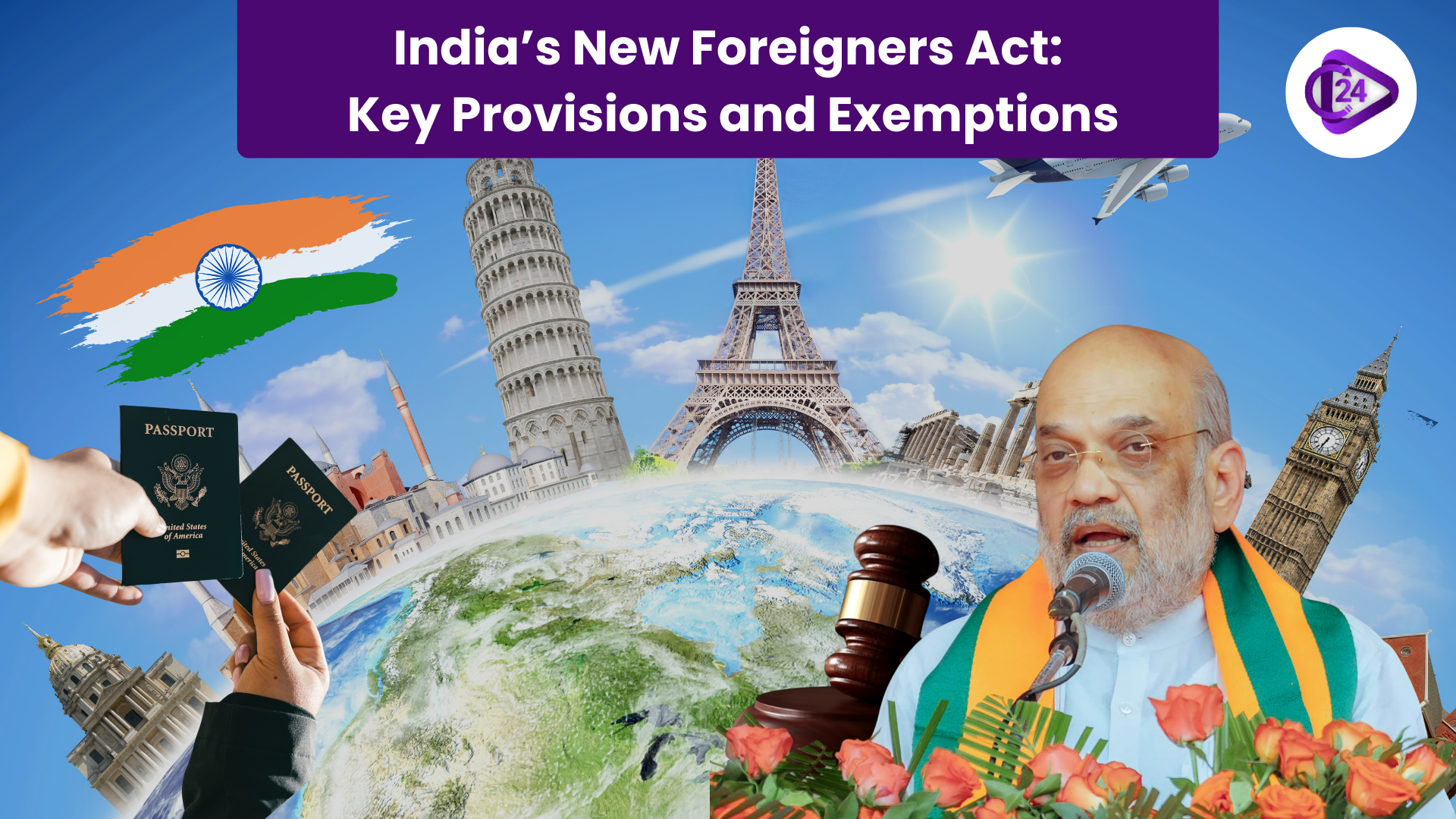
With the Immigration and Foreigners Act, 2025, which came into force on September 1, 2025, India has brought about a radical change in its immigration and foreigner laws. This new act unites several previous acts under one structure and seeks to simplify the entry, stay and exit of foreign nationals whilst clearly exempting certain groups.
Some of the Major stipulations of the New Foreigners Act:
-
Reconciliation of the Past Legislation:
-
The older laws like the Passport (Entry into India) Act, 1920, the Registration of Foreigners Act, 1939, etc. are replaced by it.
-
Streamlines the procedure by grouping together the provisions that are found in various statutes.
Developed Registration Process:
-
When foreigners enter India, they are required to be registered by certain officials.
-
The process will be controlled by FRROs (Foreigners Regional registration officers) and the civil authorities will be the local district police officers.
Entry and Exit Regulations:
-
The foreign nationals must enter and exit India using only the notified posts like major airports, seaports and land border posts.
-
These posts will have immigration officers who will determine whom to allow into the country or deny entry depending on national security.
Protected Area Special Permits:
-
Tourists who visit safeguarded, limited or barred regions will have to have special permits which they can obtain by applying online or through mobile applications.
In-service Healthcare Notifications:
-
Hotels, hostels, and other accommodation facilities are required to file the information of the foreigners who visit them within 24 hours of their arrival and departure.
-
The universities and hospitals must also report foreigners admitted or treated to the authority, birth or death of a foreigner within seven days.
Fines and Penalties:
-
The legislation provides graded fines in the event of any violation that also refers to overstaying, unauthorized admission to the secured zones, or failure to register. The penalties are 10,000 to 5 lakh and certain vulnerable groups are exempted.
The exemptions and Special Categories:
-
Tibetan Refugees: Special entry permits are granted to Tibetans who came prior to 1959 or prior to May 30, 2003 or later provided that they are registered.
-
Minority Refugees: Excludes Bangladesh, Pakistan, and Afghanistan (Hindus, Sikhs, Buddhists, Jains, Parsis and Christians) who entered the country in advance on or before December 31, 2024, regardless of whether they have legitimate documents or not.
-
Sri Lankan Tamils: Refugees that sought refuge in India through January 9, 2015 are also not subject to normal rules of registration.
-
Diplomatic and official passport holders: There are exceptions that are given to diplomats and official passport holders in some countries.
Electronic and Digital Records:
-
The bill suggests applying digital cues through portals and mobile applications that will simplify observing the foreign nationals and implement enforcement. This also increases the management of the health of the people and helps in making decisions on citizenship.
Enforcement and Appeal Mechanisms:
-
Centralized control: The Act puts power in the hands of the central government and it minimises uncertainty in enforcement.
-
Process of appeal: It has been made quite clear that there is a process of appealing fines and penalties, and those who comply in good faith are now safeguarded.
Conclusion:
The Immigration and Foreigners Act, 2025 is a globalized and updated structure that captures most of the loopholes in the earlier legislation in India that concerns foreigners. The Act also seeks to simplify the control of foreign nationals in India by centralizing the enforcement process, digitalizing registration and reporting, and ensuring specific vulnerable populations exemption, as well as providing better protection and mitigating the possibility of a legal gray area. Digital tools and graduated fines will also make the system more transparent and accessible to increase implementation and efficiency.



 India Develops Rare Reference Material for Enhanced Anti-Doping Testing in Sports
India Develops Rare Reference Material for Enhanced Anti-Doping Testing in Sports GST Council: Constitutional Provisions and Functions
GST Council: Constitutional Provisions and Functions India’s First Vulture Conservation Portal Launched
India’s First Vulture Conservation Portal Launched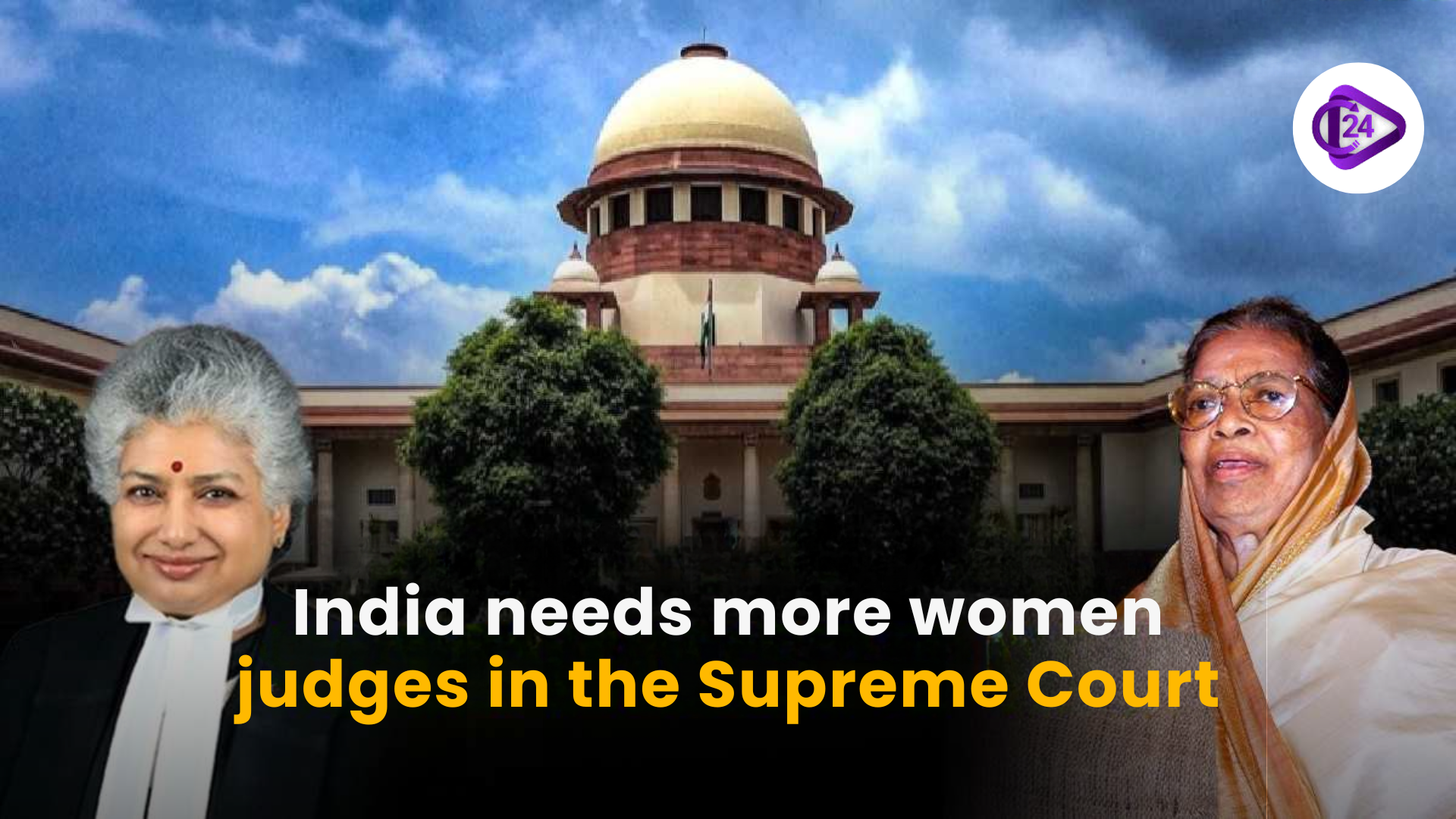 India needs more women judges in the Supreme Court
India needs more women judges in the Supreme Court Sickle cell: The battle for disability justice
Sickle cell: The battle for disability justice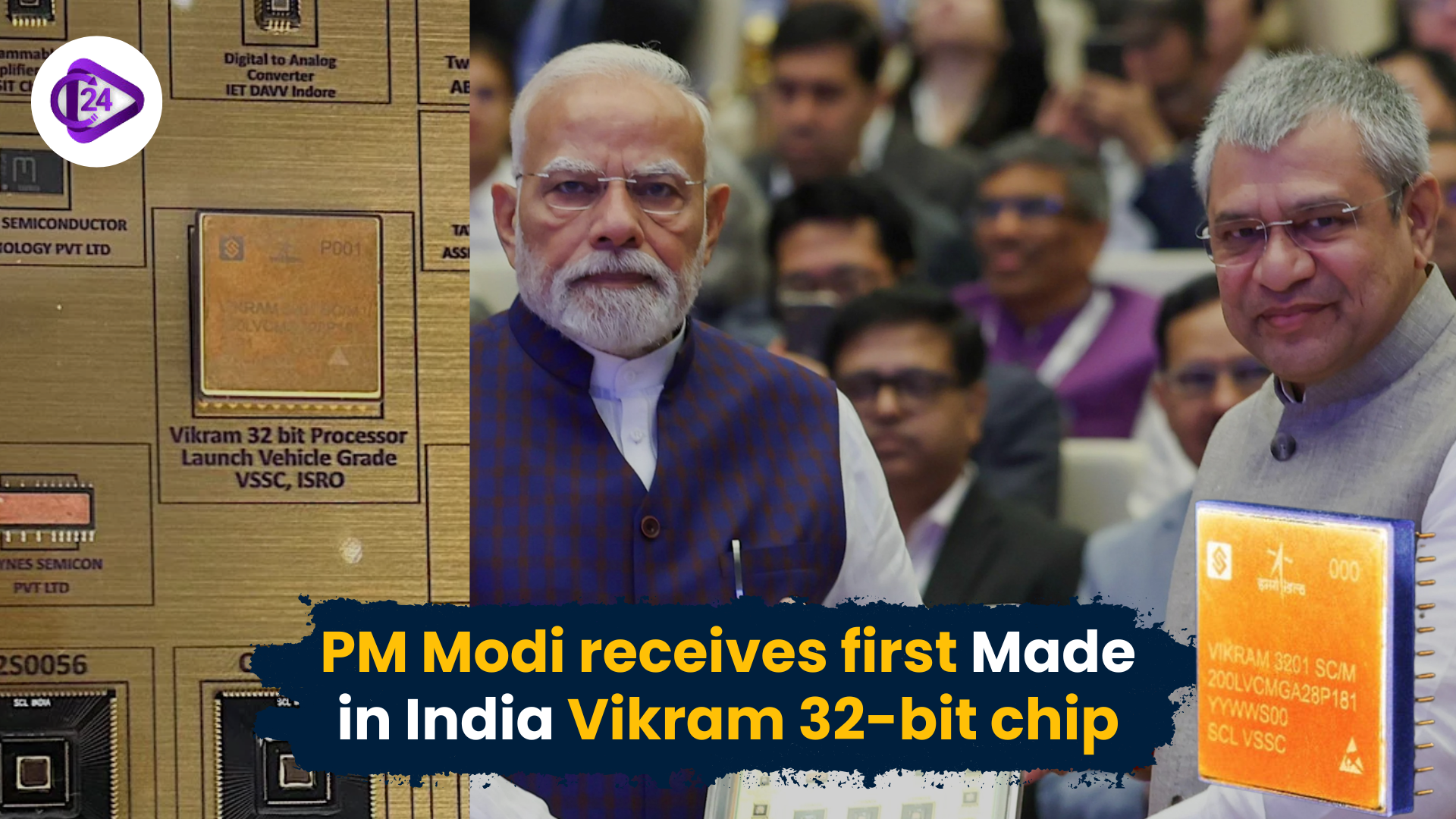 PM Modi receives first Made in India Vikram 32-bit Chip
PM Modi receives first Made in India Vikram 32-bit Chip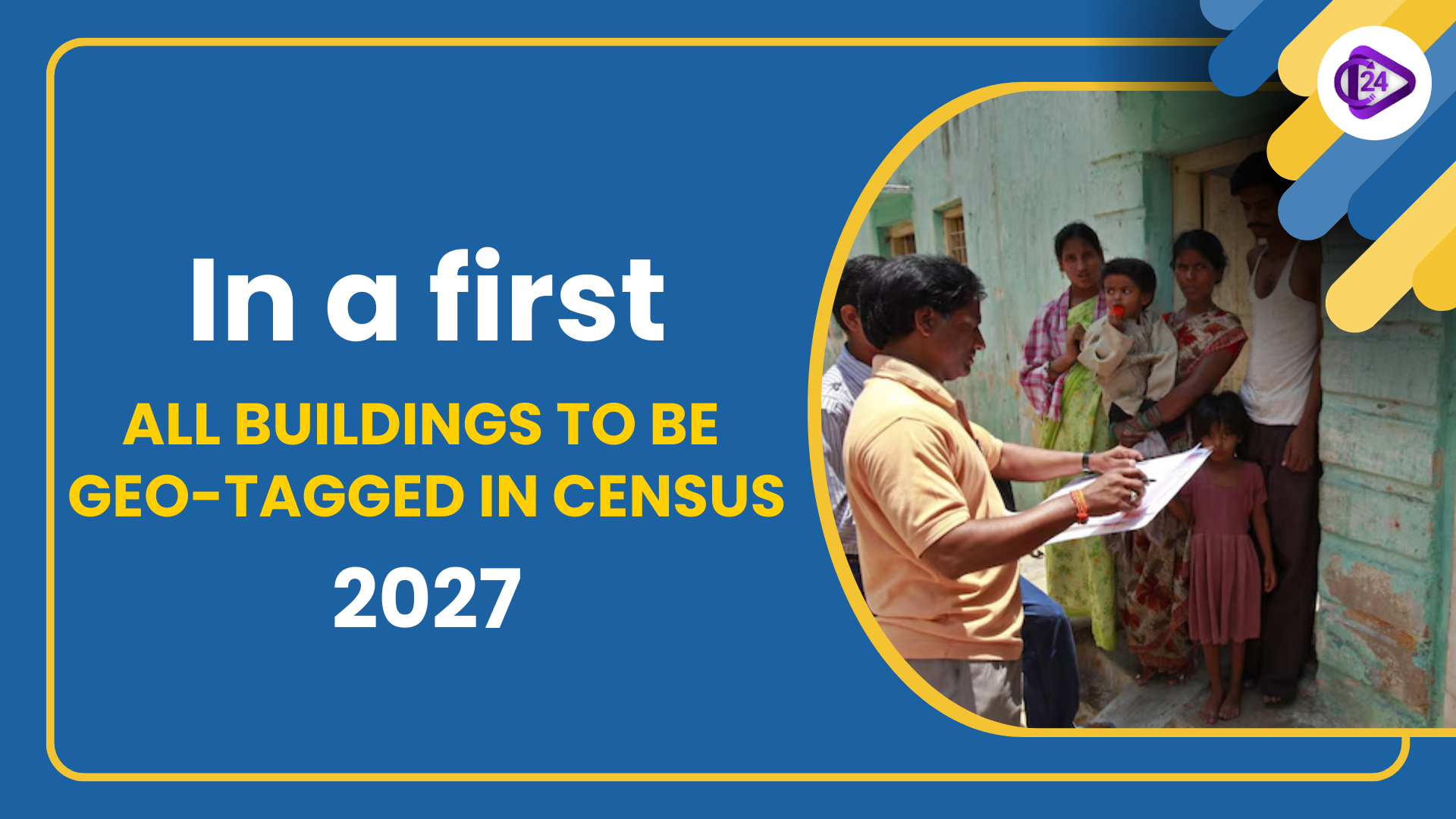 Census 2027: First Digital Census with Geo-Tagged Buildings
Census 2027: First Digital Census with Geo-Tagged Buildings The rise and risks of health insurance in India
The rise and risks of health insurance in India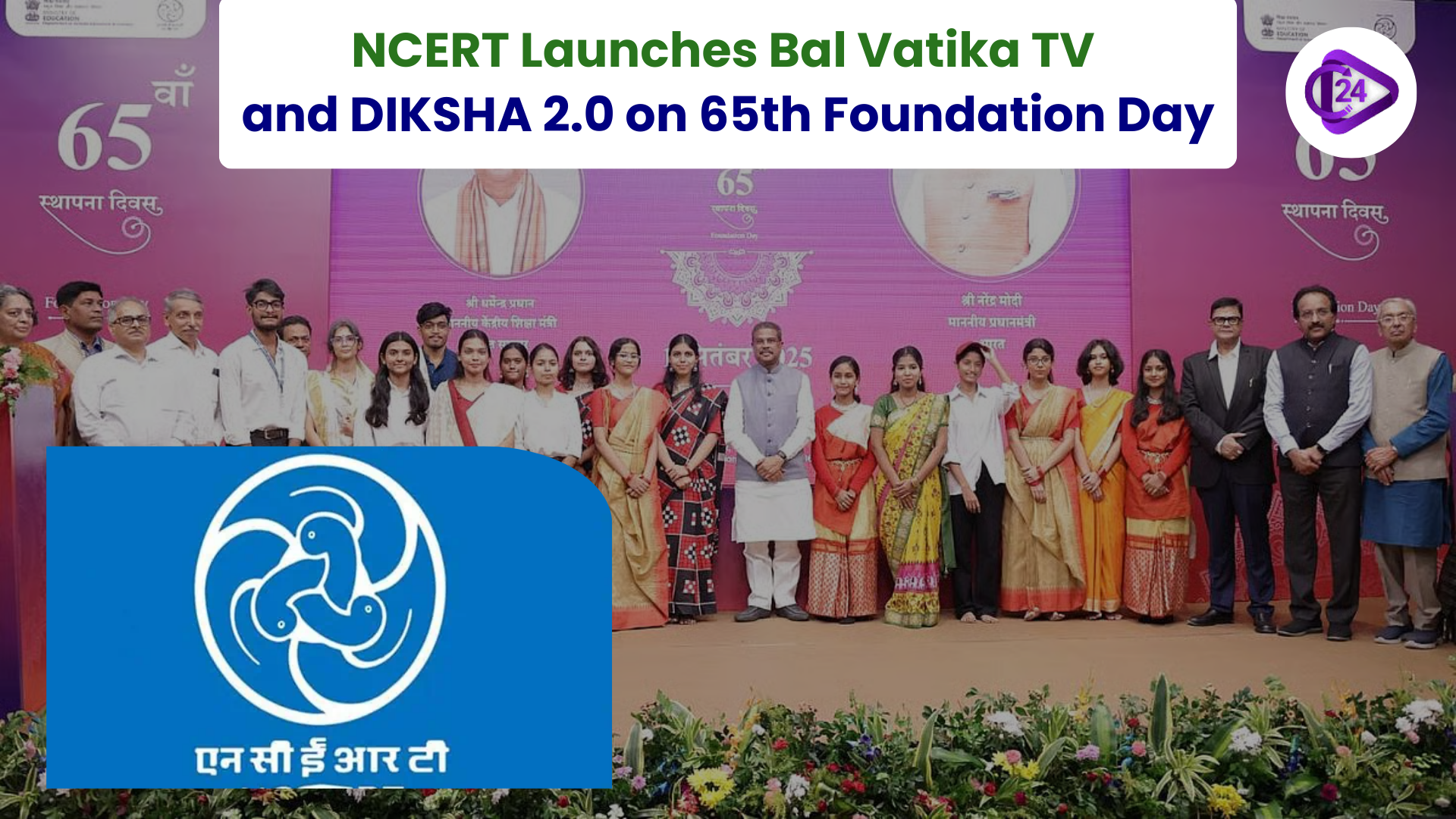 NCERT Launches Bal Vatika TV and DIKSHA 2.0 on 65th Foundation Day
NCERT Launches Bal Vatika TV and DIKSHA 2.0 on 65th Foundation Day






